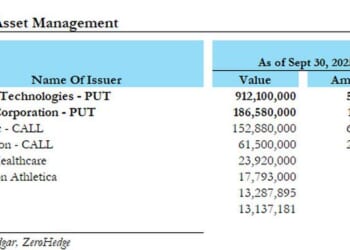
Young men in America are having a difficult time. They’re working less, dating less, and facing more mental health challenges than males of previous generations. For years, their struggles have remained in the background as social commentators and policymakers focused on improving the well-being of women and girls.
In the aftermath of the 2024 election, however—amid the persistence of a notable gender split in political party support and a shift toward Donald Trump on the part of young men—men’s struggles have come to the forefront.
A bipartisan group of lawmakers, policy experts, and journalists gathered in Washington, D.C., on Monday for a day-long Symposium on Young American Men, where they discussed policy and lifestyle changes to restore men’s purpose, help them flourish, and ensure they feel that they have an important role in society.
They were clear about the difficulties facing young men: joblessness, isolation, and a lack of meaning in life. Polling organization Cygnal surveyed 1,000 young men ages 16 through 28 last month about how satisfied they are with the direction of their lives. “The men who are online the most—six hours or more per day—who never exercise, are irreligious, and who don’t participate in any organized social group, they are doing the worst, the worst. They report worse mental health, fewer friends, and worse life satisfaction,” Cygnal pollster Alex Tarascio said.
Contrast those with the men who report satisfaction in life: “The man who says his life is on track, he still spends a ton of time online, but he balances that with in-person activities. He’s online, but for less than six hours a day,” said Tarascio. “He also spends 11 hours or more per week socializing in person with his friends, and he’s involved with organized social groups. He regularly exercises, and he was, or is, a member of a collegiate fraternity. He is religious, though he may not be devout, and he says his mental health is good or excellent. And crucially, he has male mentors in his life and role models that he can talk to when life gets hard or to turn to for advice about how to be a man.”
There are some difficulties men face that are out of their control. But the key habits that successful and happy men, according to Cygnal’s poll, partake in—working out, socializing in real life rather than on social media, and being somewhat religious—are within their power to change, and much of how to help men revolves around how to take agency to put themselves on a stronger footing.
“As long as we look at ourselves as helpless victims of some social probability curve, we’re going to be in trouble,” said Nick Eberstadt, author of a 2016 book called Men Without Work and an American Enterprise Institute scholar, on a panel focused on how to help men economically. “But as long as we understand that we have within ourselves the ability to tackle problems and with grit and determination to come at them again and again, you get very different outcomes.”
One thing that has plagued young men is a lack of socialization, with younger millennials and Gen Z males opting for online relationships rather than real-life ones.
“Depending upon the survey, 15 to 20 percent of young men say they don’t have even one close friend, so completely friendless, one in five,” said John Cusey, executive director of the Institute for Families and Technology, speaking on a panel about young men and technology. “That’s devastating.”
Technology pervades most Americans’ lives, and it offers an escape from the difficulties of the real world, which is one reason why young men are gravitating away from tangible opportunities and into the digital space.
“Let’s say that you’re a young man in kind of a boring, entry-level 9-5 job [in which] you’re not appreciated, and you hate [it]. How does that compete against multiplayer [mode] in Battlefield 6, 32 v. 32, with all your buddies? It can’t.” said Michael Marinaccio, executive director of the Center for Responsible Technology, referencing a video game feature. “Or let’s say that you’re dating a really wonderful girl who’s very kind, abstaining from sex because she wants to get to know you, and to love you, and wants to eventually get married. How can she compete against hardcore pornography?”
Rather than sitting in front of a gaming console, some panelists recommended hitting the gym as a way to improve both physical and mental health. American health outcomes are not where health experts would like them to be right now, with obesity rates in the 21st century especially high. Those men who report that their lives are going in a positive direction are the ones who also work out.
“When you’re working out, you’re strengthening your mind,” said Lance Van Zandt, a senior director at Honeywell and retired Army colonel, on a panel discussing how men can make connections with each other. “You’re reducing stress, you’re helping your emotions, you’re building confidence, and that’s what young men need to be doing, to go to a gym, go get out, go work out, go meet people, fight against isolation. Just encourage these guys to get out and do stuff that keeps them from being alone.”
Panelists also discussed the benefits of attending houses of worship, and researchers recently have noted an uptick in religious observance among Generation Z men.
“My mom was determined I was going to be around male role models,” said Sen. James Lankford of Oklahoma, speaking on a panel about fostering faith in young men. “So we got involved in church. She pursued ways to be able to get me connected.”
Joining religious groups can facilitate the formation of friendships, but people still need to be connected to a larger sense of purpose. One way of doing that is cultivating a spiritual life and growing closer to God—the primary purpose of a religious establishment. At the same time, churches can organize ways for people to serve their fellow man, and Lankford argued that faith-based groups need to offer more such service opportunities to help men, rather than simply providing social activities such as sports and games.
“I serve next to somebody with something that’s purposeful, I’m connected to this person because we have purpose together,” Lankford said. “And I think that’s one of the missing areas. … We’re challenging men to come play but not come serve and give their life away and sacrifice for something bigger than themselves.”
Ultimately, there is nothing stopping young men from being physically active, going out and making friends, going to church, or serving the poor and marginalized. The opportunities are there for those who seek them out, but other barriers persist.
As the polling data indicates, positive male role models are crucial in men’s lives, and many communities do not have them. Antong Lucky, a former gang member, mentors young black men and boys, filling a void he experienced from having grown up in a single-parent household.
“There wasn’t no positive men in my community,” Lucky said at the symposium. “And so I thought I was doing a great job by starting a gang, looking for family and friends and all that good stuff. But I was sadly mistaken. That wasn’t the right idea to do.”
And one thing that has made men feel disadvantaged is rhetoric from the political left that marginalizes male needs and experiences. Talk of “toxic masculinity” and “patriarchy” are especially prevalent on college campuses. Sen. Ruben Gallego of Arizona, a Democrat whose party has tried to make political inroads with young men as a voting bloc, was cognizant of the effect of such progressive efforts.
“It’s gone too far, [people saying] that if you are a masculine man, or if you’re a man in general, you are, by nature, somewhat toxic,” Gallego said. “And I think that creates this horrible feedback loop that kind of creates even further isolation.”
He recounted a conversation with a fellow elected official who asked for advice on how he could better appeal to men. Gallego suggested a Father’s Day event to recognize the contributions of fathers. But the colleague was hesitant that he would receive criticism—despite the fact that he would happily do a similar event for Mother’s Day.
“How is it that we’ve gotten into this mindset—and I say we, this is Democrats, just to be clear—that if somehow we cherish and understand and respect fathers that somehow it’s diminishing the status of mothers?” he said.

















